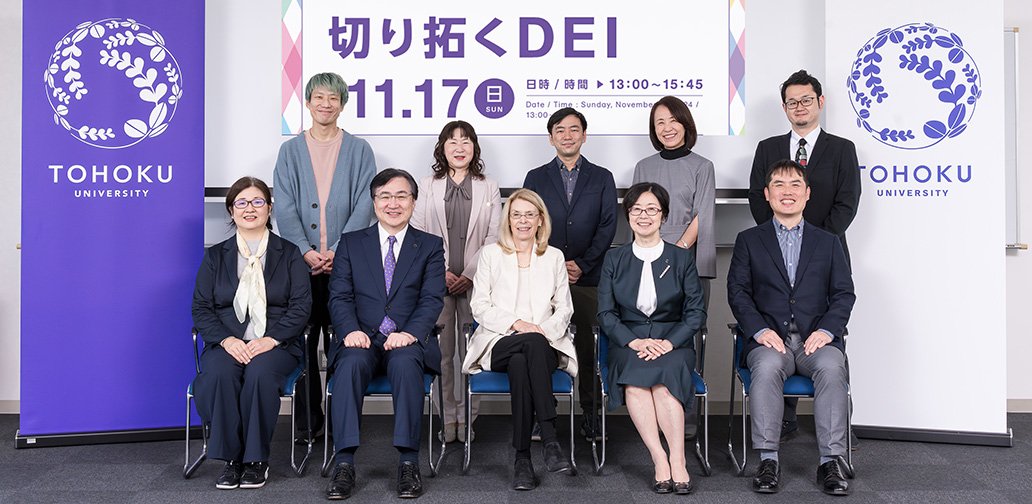Tohoku University held its 2024 Diversity, Equity, and Inclusion (DEI) Symposium on November 17 at Kawauchi Campus, drawing a crowd of nearly 200 on-site and online participants. The event focused on the theme of "Gendered Innovations" and highlighted the university's progressive stance on fostering an inclusive academic environment.
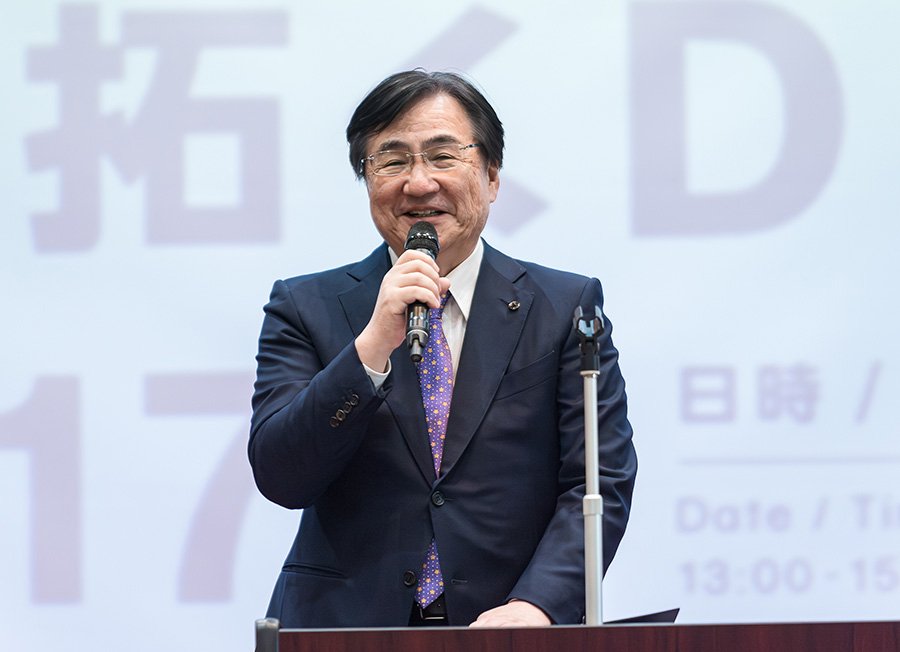
Tohoku University President Teiji Tominaga opened the symposium by reflecting on the institution's long history of inclusion, including being the first in Japan to admit women in 1913, and one of the first to welcome international students soon after. "For over a century, our founding policy of having an 'open door' has embodied the modern concepts of diversity and inclusion," said Tominaga. "It is a policy that defines who we are today, as we continue to welcome talented individuals regardless of gender, educational background or nationality."
In 2022, the university issued a "Diversity, Equity, and Inclusion (DEI) Promotion Declaration," and its commitment to DEI was further underscored by its recent designation as Japan's only University for International Research Excellence. "To achieve innovative and excellent research results while competing with leading global universities, we believe it is essential to create an environment where diverse talents can maximize their potential," said Tominaga. "Equity and inclusion will continue to be an important part of our plans going forward."
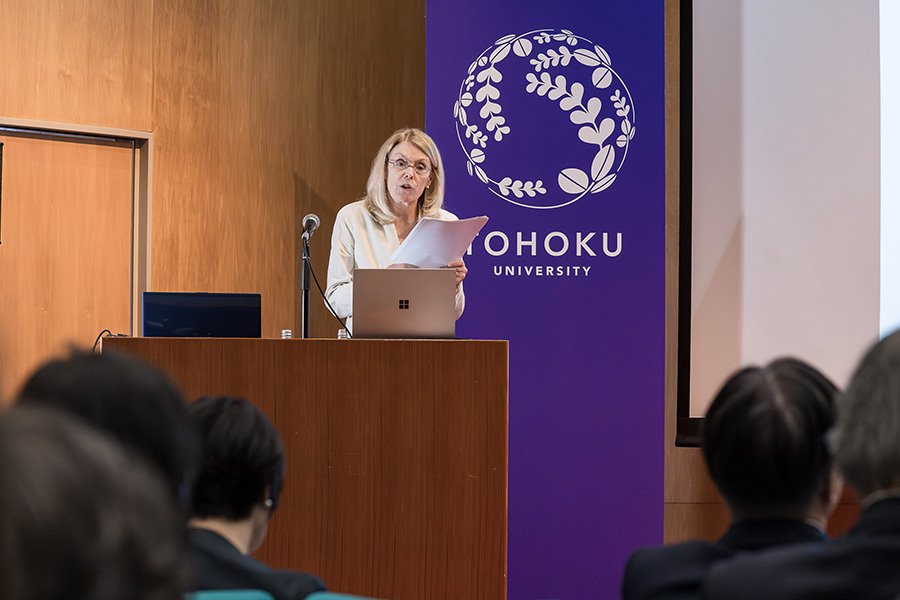
The keynote lecture, delivered by Stanford University Professor Londa Schiebinger, explained the concept of "gendered innovation," the main theme of this year's symposium. The approach integrates sex, gender and intersectional analysis into research design, aiming to enhance scientific discovery and innovation by considering diverse perspectives.
Schiebinger outlined three traditional strategic approaches to gender equity in science and engineering: increasing representation of women and underrepresented groups, promoting equity in careers, and integrating gender considerations into research itself. "We often distinguish these three fixes analytically, but in reality they work together," she said. "And although most people and most universities try to fix the numbers first, we're not going to fix the numbers unless we also fix the knowledge."
Schiebinger further emphasized the importance of intersectionality in research, noting how factors such as gender, ethnicity, age and socioeconomic status can significantly impact scientific outcomes. Failing to consider these factors, she added, can have devastating consequences, particularly in fields like medicine and pharmaceuticals where "doing research wrong costs lives and money."
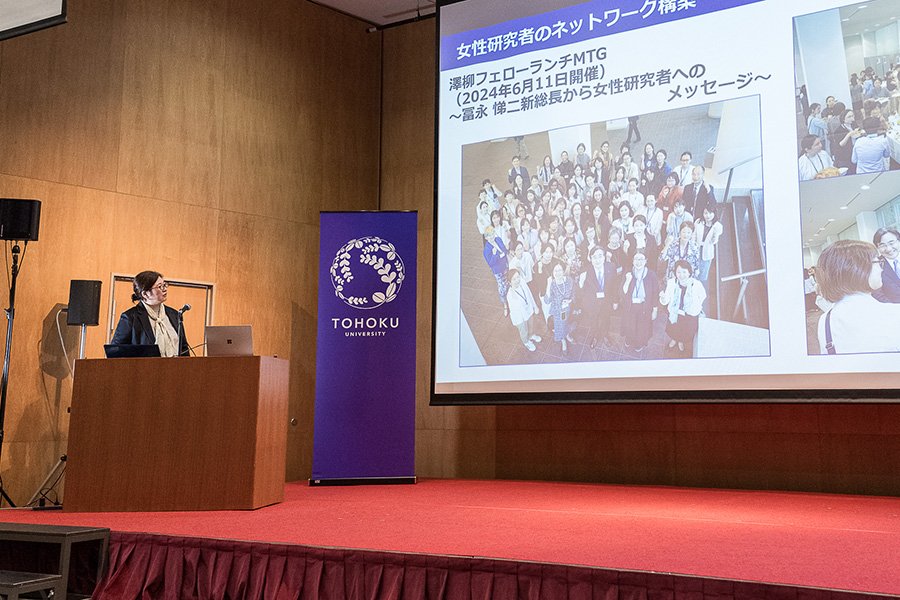
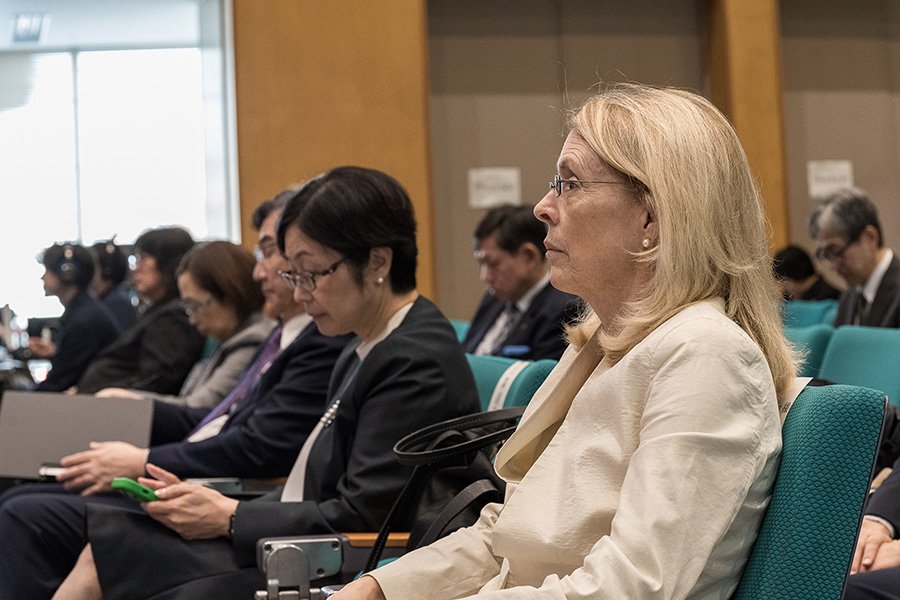
Professor Mami Tanaka, Director of the Centre for DEI Promotion, also gave a presentation, detailing Tohoku University's ongoing efforts to promote diversity, equity, and inclusion on campus. She highlighted several initiatives such as a system to encourage male faculty members to take childcare and paternity leave, and the creation of a "DEI Lounge" as a safe space for members of the LGBTQ+ and other minority communities.
In the second half of the symposium, a panel discussion explored the practical applications of gendered innovation in various fields. Panelists highlighted the importance of diverse perspectives in business, entrepreneurship and community development. They also discussed the need for intersectional analysis to support people with disabilities and address multifaceted forms of discrimination.
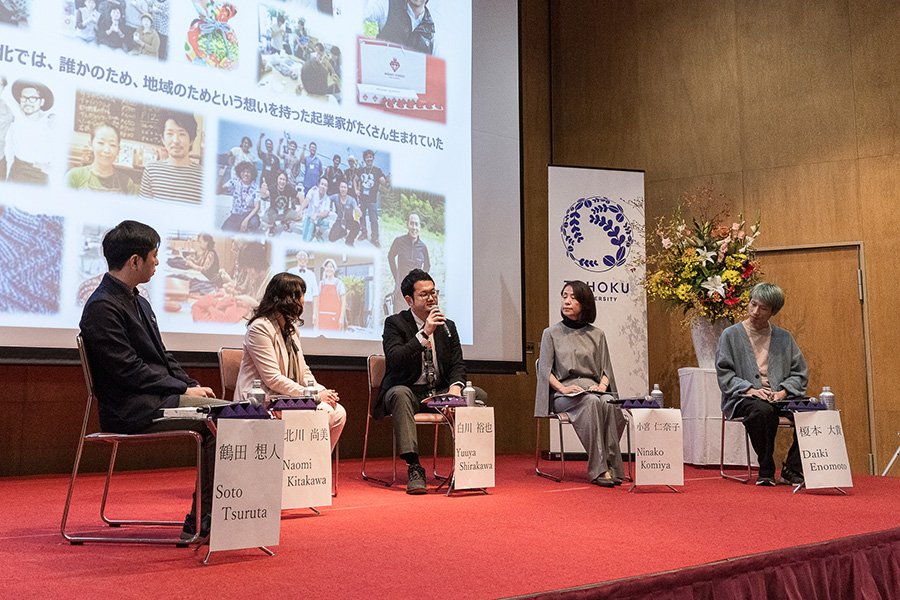
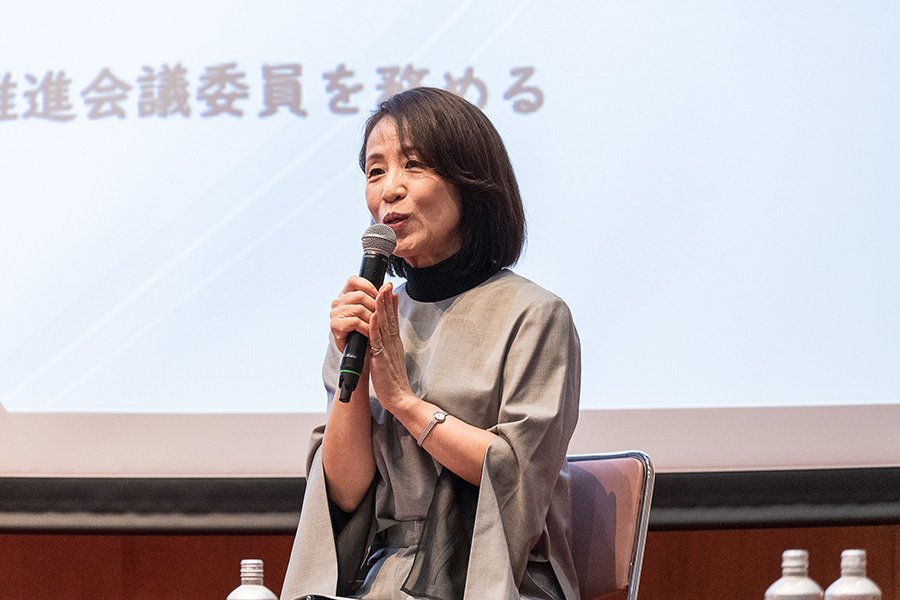
The symposium wrapped up with a lively Q&A session. When asked how universities can promote gendered innovation, Schiebinger pointed to Harvard University's "Embedded EthiCS" programme as a good model to consider. The programme, which integrates ethics modules into courses across Harvard's computer science curriculum, encourages students to think through the ethical and social implications of their work. "The idea is that in core engineering STEM courses where intersectional and social issues are not usually taught, you can have professors from both the social sciences and from the technical fields co-teach, so that the social analysis can be brought to the technical work," Schiebinger explained.
In conjunction with the symposium, Tohoku University also held two other DEI events - a lunch session on November 14 with Schiebinger and members of the Science Ambassadors programme, and a community workshop the next day, co-hosted with Sendai City's Diversity Promotion Division.
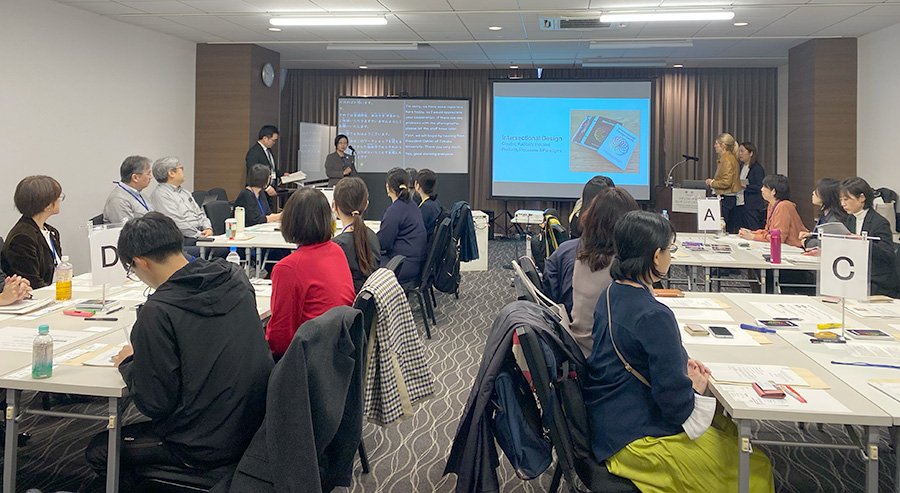
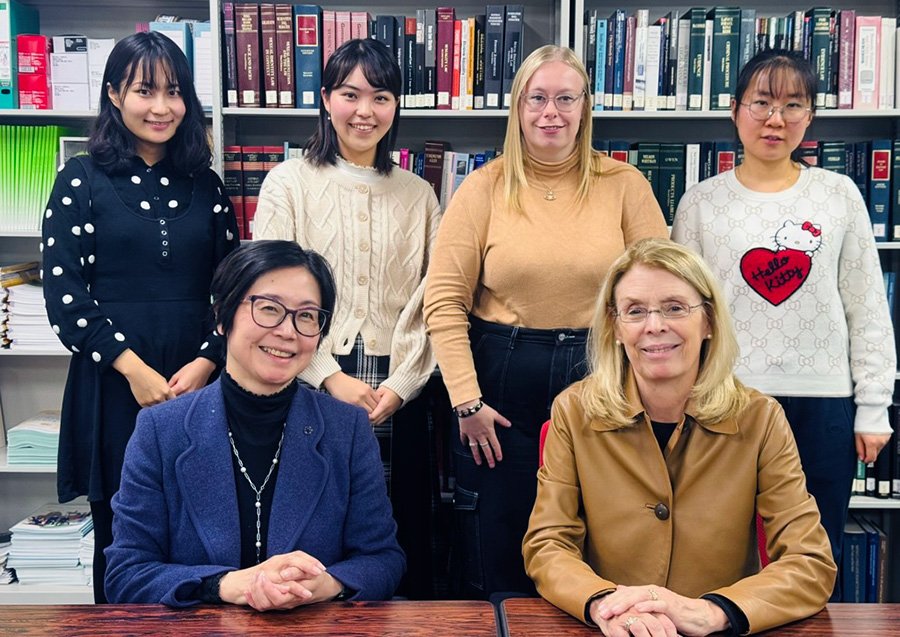
Contact:
Tohoku University Centre for Diversity, Equity and Inclusion (DEI)
Tel: 022-217-6092
Email: dei-centre  grp.tohoku.ac.jp
grp.tohoku.ac.jp
Website: https://dei.tohoku.ac.jp/en/

